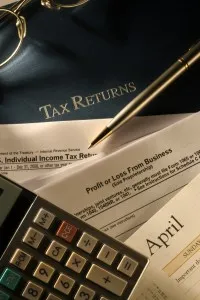We have all heard this term before, but do you really know what it is? It can be confusing, but that is what this blog post is for; hopefully I can clear things up for you. Depreciation is the term that is used when an asset that you own loses value over time due to deterioration or normal wear and tear.

Filing taxes is an annual burden we all must bear. We hope to ease that burden a bit by explaining one of the more mystifying terms, "depreciation", in layman's terms.
Ok, so why is this important? An item that you own that gets old and worn over time depreciates. “You have given a name to wear and tear. Thanks for that; what an excellent blog post you have written,” you may be saying to your self.
Wait; hold on, there is more. What if I told you that depreciation could save you money? Do I have your attention again? Good. Depreciation can be used as an annual income tax deduction. You can recover the cost of certain assets as you use them.
So on what assets can you deduct depreciation? The answer is most tangible assets such as equipment, machinery, furniture, vehicles, and buildings, excluding land. There are also a few intangible assets that are included as a depreciable asset, such as software, copyrights, and patents.
Now before you go off and redo your taxes, there are some rules as to what tax deductible is, and what is not.
To be depreciable, your asset must:
- Be property you own. Ownership is established even if you are paying the asset off, such as a work truck payment.
- Be used in YOUR business or income-producing activity.
- Have a determinable useful life. This means that it must be something that loses value over time, i.e., decays, becomes obsolete, wears out, or gets used up.
- Be expected to last more than a year.
That being said, as far Uncle Sam is concerned, an item begins to depreciate from the moment it is used for your trade, business, or production of income. Meaning as soon as the asset is in place and ready to be used for a business activity, you can start to calculate depreciation. You cannot, however, claim depreciation if you place an asset in service for personal use.
When does an item stop depreciating? How long can depreciable assets be tax deductable? An asset stops depreciating either when you have fully recovered your initial cost of the asset or when you retire it item from service. You retire an item from service when any of the following events happen.
- You sell or exchange the property.
- You convert the property to personal use.
- You abandon the property.
- You transfer the property to a supply or scrap account.
- The property is destroyed.
Now that you know the rules for depreciation, you may want to know how to calculate depreciation for your upcoming tax returns. There are several methods available, too much to include on this blog. I do, however, encourage you to check out our website for a complete list of depreciation methods and formulas. Go to our
Asset Tracking Solution page and then click on the Learning Center tab in the lower right hand corner.
As always, I love to hear from you. Let me know what you think or if there is anything you think I missed.
